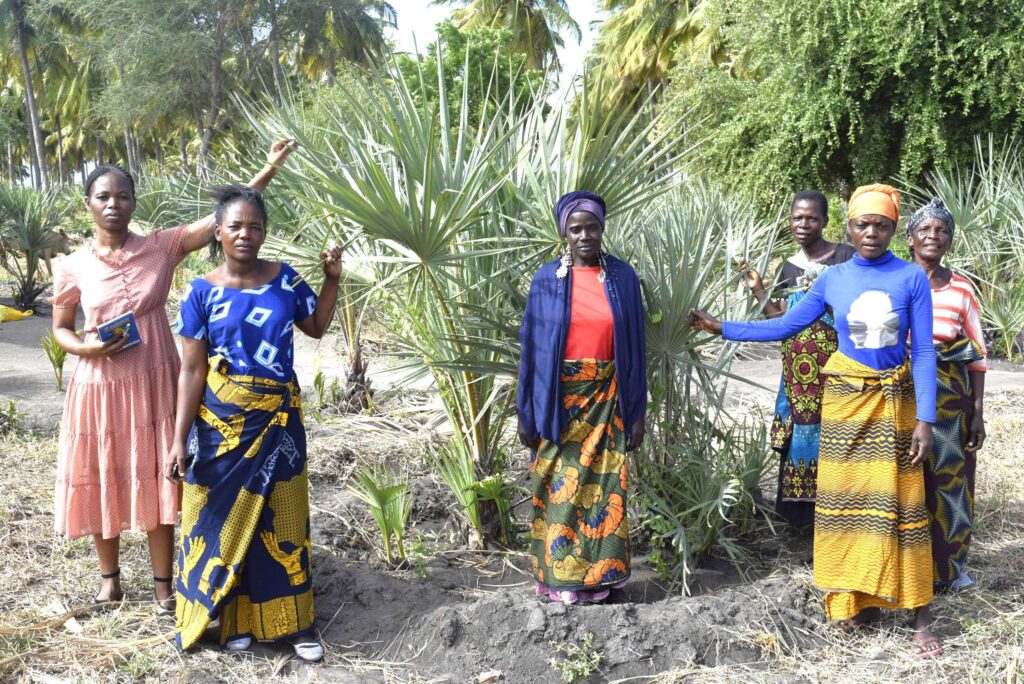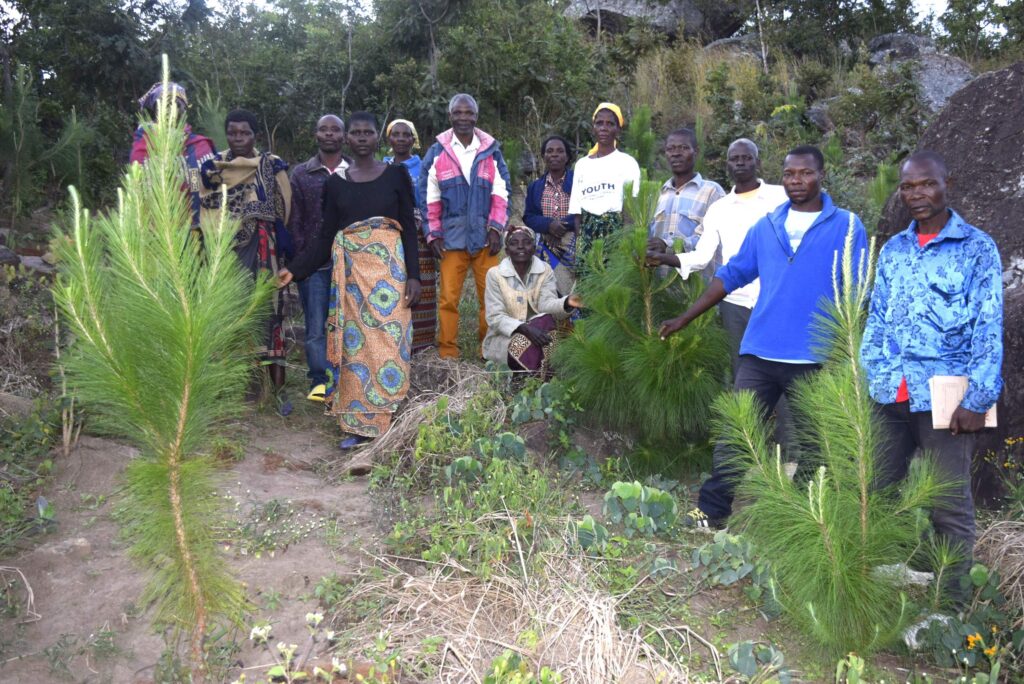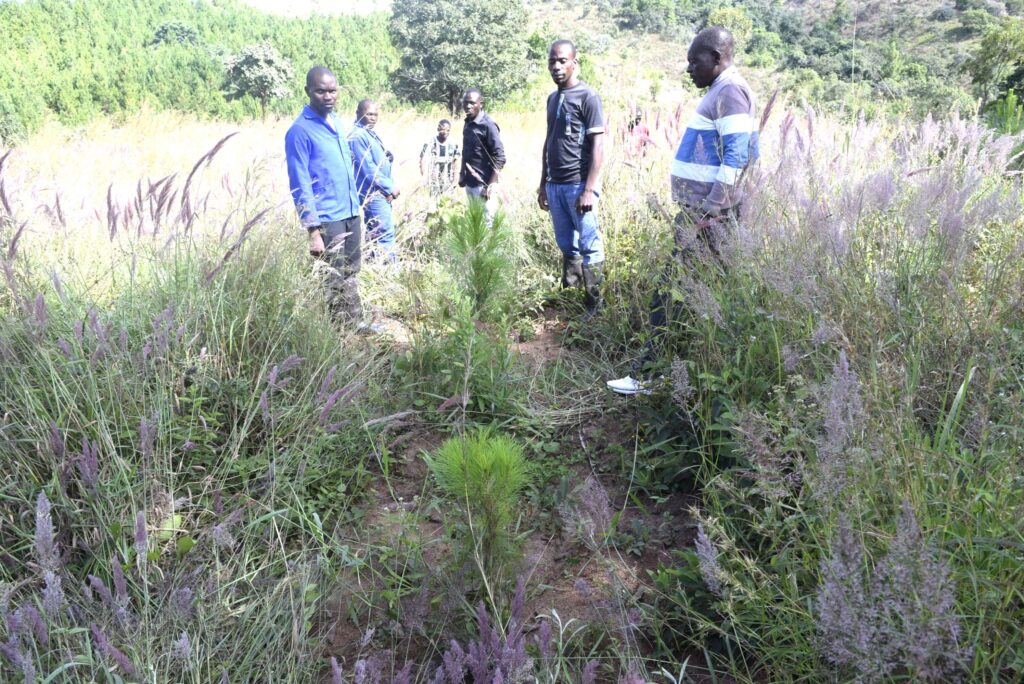Gogo Christina Mpinganjira recounts her youthful days when they used to collect wild mushrooms and see wild animals from the mountains of Kapirimutu, Nthunzi, Mchenga, Ntcheu, Mwasadzu, and Chipendeko in Dedza.
This was when the hills, popularly known as Seven Hills had its vegetation cover intact, before the community raged on them through charcoal burning, and other human activities.
The sorry state of the Seven Hills, which has rendered Gogo Mpinganjira destitute to find the wild food again, and the diminishing traditional cold breeze of Dedza, is also visible in other forests across the country.
The situation compelled people like Gogo Mpinganjira and others to take a step to rescue the forests from the raging individuals, so as to allow the new generation to appreciate the natural vegetation and its inhabitants like herself.
Through the Forest restoration project by National Bank of Malawi (NBM) plc launched in 2022, Gogo Mpinganjira and 149 other people around Dedza Seven Hills have benefitted from the K100 million funding which aims to give back life to three forests, including the Mangochi Palm Forest, and Jembya Forest Reserve in Chitipa.

“For two years now, we were given 15, 000 pine seedlings covering 500 hectares in the six hills. As members of the community, we have owned this development and have been steadfast in taking care of the trees by weeding, pruning them to ensure they have enough space and moisture. NBM Plc also gave us some fruit tree seedlings that we planted in our various homes,” she said.
A visit to Mangochi Palm Forest, and Jembya in Chitipa indicates similar progress in the forest restoration drive by NBM Plc.
According to Mangochi forestry assistant, Ellah Minthanje members of the community from five villages have been in the forefront taking care of the 6000 Coconut, Palms, Mbawa, and Ngongomwa trees that were planted in the forest on a space of 210 hectares.
“The response has been good from the communities. Together we are able to regenerate Mangochi Palm Tree Forest through enrichment planting, spot cultivation, fire breaking, screening, brushing, singling and other activities funded by NBM Plc.”
“The restoration activities have also benefited the community in various ways, including improvement of their livelihoods through wages they get after doing the work, and we also anticipate nutritional boost through the fruit trees they have been given to plant in their respective homes,” she explains.

Apart from the forest restoration to create a sustainable environment, the NBM plc project also ensures the livelihood sustainability.
While in Mangochi and Jembya people opted for wages and fruit seedlings to sustain themselves, in Dedza community members asked to be given livestock like goats which they share rotationally.
“Through the program, we have started keeping the animals, which is part of empowering us financially as we will be able to sell some and even for our food at home,” Gogo Mpinganjira says.
Felister Jeremiah, Chairperson of Tikondane group, which comprises women around Mangochi Palm Forest taking care of the trees, highlights some of the benefits from the project.
“Personally, I have a child in Secondary school whom I am able to support financially. We also have women in our group who are able to support their families from something we get from taking care of these palm trees, we call them ‘Mgwalangwa’ in Chiyao. We no longer struggle to get firewood as women because we have the trees at home,” she says.
In Jembya, Komani Mtonga says they have managed to plant 32, 000 seedlings on a 500-hectare land.

“We are making great progress here. We just want to appeal to the Bank to ensure funding is made faster so that we facilitate the weeding process to avoid the bush fires,” explains Mtonga.
An environmentalist, Maloto Chimkombero commends NBM plc for the initiative saying the corporate world needs to invest more in environmental restoration.
“Companies are important stakeholders in environmental conservation as they play a crucial role in supporting and implementing various environmental projects as part of Corporate Social Responsibility drives.”
“So far, most companies are trying their best as we have seen companies adopting the management of forests and also supporting tree planting activities in various communities of the country,” says Chimkombero.
NBM plc Marketing and Corporate Affairs Manager, Akossa Hiwa says the Bank through its corporate social investment (CSI) understands its role in contributing to a more sustainable future in environmental conservation as they support Government efforts on the same.
“This is a huge investment and as a Bank, we take pride in how we have managed to restore the forest, and our impact on the people’s lives as they work to restore the forests around them as we strive to achieve the Malawi 2063 Agenda,” says Hiwa.
“Through the program, we have started keeping the animals, which is part of empowering us financially.”
Gogo Mpinganjira
National Bank of Malawi Forest restoration project beneficiary



